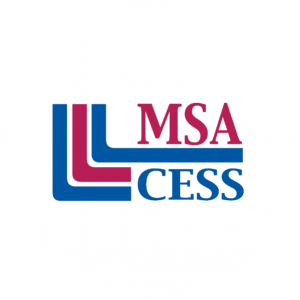When March 2020 began, few families could have imagined the effect COVID-19 would have on their experience of school, work, and life. Under the assumption everything would get “back to normal” in a few weeks, many were happy to try working remotely, socializing via Zoom, and learning at home. Even homeschooling families were willing to endure, for a time, what they deemed “isolation schooling,” which, as Clonlara alum Shannon explains, is not the same as homeschooling.
Now, nearly two years into the global pandemic, the virus has fundamentally challenged almost every aspect of life and learning. Many educators are questioning and reconsidering traditional school practices, but Clonlara’s learning approach has remained intact—a rare exception in a worldwide upending of educational institutions!
An Impetus for Experimentation
The pandemic “has turned schooling into a universal large-scale experiment,” says Yong Zhao, professor of education at the University of Kansas. “Education systems, schools, and classrooms have had to stop many old practices and invent new ones.”
These significant disruptions in schooling go beyond merely moving from the classroom to the computer, notes a team of education reporters. The global upheaval in education “tested basic ideas about instruction, attendance, testing, funding, the role of technology, and the human connections that hold it all together,” they write.
Indeed, numerous reports and articles during the pandemic show that many traditional schools have necessarily shifted toward some type of reform—moving away from teacher-centered classrooms, using technology to maintain connections during remote learning, expanding the curriculum to allow and encourage student interests, easing homework requirements, and discarding standardized tests.
The question is: When the pandemic winds down, will these changes remain?
The Future of Education Looks a Lot Like Clonlara
Professor Zhao encourages educators to use the unique opportunity brought on by the pandemic to examine “traditional operations” by considering several fundamental questions:
- Do all students need to follow the same curriculum?
- Do all students of the same age need to be taught the same content?
- Do all students need to be in the physical classroom five days a week?
- Do all students need to be taught by local teachers?
- Do all students need to complete the same examinations?
- Do all students have to complete 12 years of study?
While these questions are crucially important today, Pat Montgomery answered “No!” to them when she founded Clonlara School, laying a solid foundation that has remained unshakeable through the tests of time, passing trends, and even today’s pandemic troubles.
For more than 50 years, Clonlara students have followed their interests in and out of classrooms. They have learned at home, in their local communities, and all around the world. They have enjoyed the guidance of teachers and advisors, parents and peers, mentors and coaches. We have always taught students the importance of self-reflection and evaluation, helping them to internalize our research-supported Full Circle Learning approach as they embark on their learning journeys.
Opportunity Springs from Calamity
For many families, COVID-19 provided the motivation to try something new. Elizabeth, a nurse working since the beginning of the pandemic, decided to enroll her children in Clonlara’s Off-Campus Program and, glad that her “kids have loved it and prospered,” opted to stay with us!
Because Clonlara’s fundamental approach to learning endured the initial COVID-19 turmoil, the pandemic also gave our staff an opportunity to implement new services for our growing student body. Clonlara Admissions Director Kelley Brewer says, “Our vision of education has not changed, but some of our methods have. Before the pandemic, we brainstormed starting virtual clubs for students and families to interact with one another. The pandemic inspired us to put those ideas into action!”
Clonlara Marketing and Communications Director Kevin Fitzgerald concurs, adding, “The pandemic changed how we work across our programs. It brought our U.S. and international staff much closer together, which in turn enabled us to do the same for our students around the world.”
Ready When You Are
We are living in “unprecedented” and “uncertain” times, for sure. Many individuals, organizations, schools, and businesses around the world have suffered through the pandemic, but will this shared experience result in systemic change in schools, or will more families simply opt to make different educational choices?
“I don’t think the pandemic has really unearthed all sorts of new ‘aha’s’ about what kids need,” says nonprofit CEO Melissa Connelly in an article about whether COVID-19 will change education. “I think it’s just forced our hand to actually try doing something different.”
Whatever happens, Clonlara will be here, providing highly personalized support to our students and families as we have done for last five decades!
To learn more about enrollment in our Off-Campus Program, please register for an upcoming Q&A webinar or contact us for more information.
So, has YOUR idea of school changed during the pandemic? Tell us in the comments below.








2 Responses
I am extremely disappointed that (with the pandemic) the world seems to think that distance learning automatically means online learning. Distance learning and online learning are NOT the same. There are many ways to homeschool and even many ways to do distance learning, only one of these being online. Before the pandemic, my student was a very active, very hands-on homeschooler, constantly participating in activities here, there, and everywhere; very little of his homeschooling was at “home”. That all changed with the pandemic of course, and almost everything was put online, which unfortunately left out most of those hands-on activities. Despite the fact that there are work-arounds for someone who loves to read books and wants to do hands-on projects, there was very little support offered for those who do not find online learning to be a good fit.
Thank you for your comment! You’re absolutely right that online learning is only one small part of homeschooling. For some students, online learning works very well. However, most Clonlara students prefer to self-design projects that allow them to follow their curiosities and interests. As the education director at Clonlara School, I’ve been so impressed by our students’ determination to carry on with those projects and interests despite the difficult external circumstances. Although they may be missing out on in-person classes and experiences for a time, our students have seamlessly continued their personalized learning throughout the pandemic.